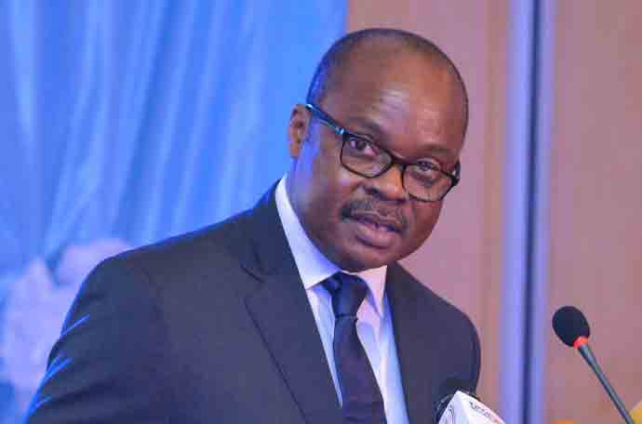Banks have a maximum of four years, ending 2025, to restore the minimum paid-up capital.
This is as a result of capital shortfall arising solely from the derecognition losses.
According to the Bank of Ghana, derecognition losses emanating from the Domestic Debt Exchange Programme will be spread equally over a period of four years, effective 2022, for the purposes of Capital Adequacy Ratio (CAR) computation.
The International Financial Reporting Standards (IFRS) states that derecognition refers to the removal of an asset or liability (or a portion thereof) from an entity's balance sheet.
Due to the impact of the DDEP on the banks, the Bank of Ghana announced some policy and regulatory reliefs for banks that fully participated in the debt exchange to reduce the effect on their operations.
These policy and regulatory reliefs were informed by stress tests on banks that revealed the potential impacts of the exchange on banks’ solvency, liquidity, and profitability.
The reliefs include reduction of Cash Reserve Ratio (CRR) from 13% to 12% on foreign currency deposits to be held in foreign currency and reduction of Capital Conservation Buffer from 3% to zero, effectively reducing the minimum Capital Adequacy Ratio (CAR) from 13% to 10%.
The Central Bank also set at 0 percent the risk-weights attached to New Bonds for CAR computation and at 100% for Old Bonds.
It pointed out that it is fully equipped to provide liquidity support to banks, while banks can access the Emergency Liquidity Assistance (ELA) using the New Bonds as collateral.
Banks record huge losses
Meanwhile, information reaching Joy Businesses indicates that the banks recorded more than ¢15 billion loss in 2022.
This is as a result of the impact of the DDEP on their operations.
So far, some banks that usually record profits and have published their results ahead of the April 30, 2023 deadline, have recorded losses.
The Bank of Ghana in its January 2023 Monetary Policy Report said banks operating in Ghana wrote-off about GH¢5.9 billion as bad debt in December 2022.
According to the Domestic Money Banks Income Statement, this is about 184.2% increase over the previous year.
The Central Bank indicated that banks are expected to publish their 2022 audited financial statements by end of April 2023 following a one-month dispensation granted them on the account of the DDEP.
This follows the necessary adjustments by its external auditors to fully reflect the impact of the DDEP.
Latest Stories
-
Former Deputy Minister calls for accountability and judicious use of state resources
22 minutes -
Prof Bokpin backs the IMF call to BoG to reduce their FX interventions
35 minutes -
Insurance industry players create awareness through “Insurtainment” games
35 minutes -
NSA boss sounds alarm on the state of facilities, calls for patience from Ghanaians
37 minutes -
Rotary Club of Accra Ridge unveils plans to boost mental health awareness and community development
47 minutes -
The United States and Israel will make new attempts to attack Iran
50 minutes -
New U.S. Visa Rules: Most Ghanaians now limited to single-entry, 3-month visas
52 minutes -
Women farmers at Savelugu, Nanton engaged on government’s agricultural policies
53 minutes -
Onesta Ghana launches Redgold Palm Oil project to boost local production and cut imports
57 minutes -
NDC’s ‘1-3-3’ job promise missing from policy document – Miracles Aboagye Claims
57 minutes -
Two arrested over alleged attempted robbery
57 minutes -
Unichem Group and LUEX Healthcare UK premier legacy documentary, ‘All together now’
1 hour -
Keeping it agile in Ghana – how top tech is transforming modern work
1 hour -
Joining Randers was the perfect opportunity to show my talent – Mohammed Fuseini
1 hour -
Global leaders underscore child protection as foundation of resilient families at SFC 2025
1 hour

